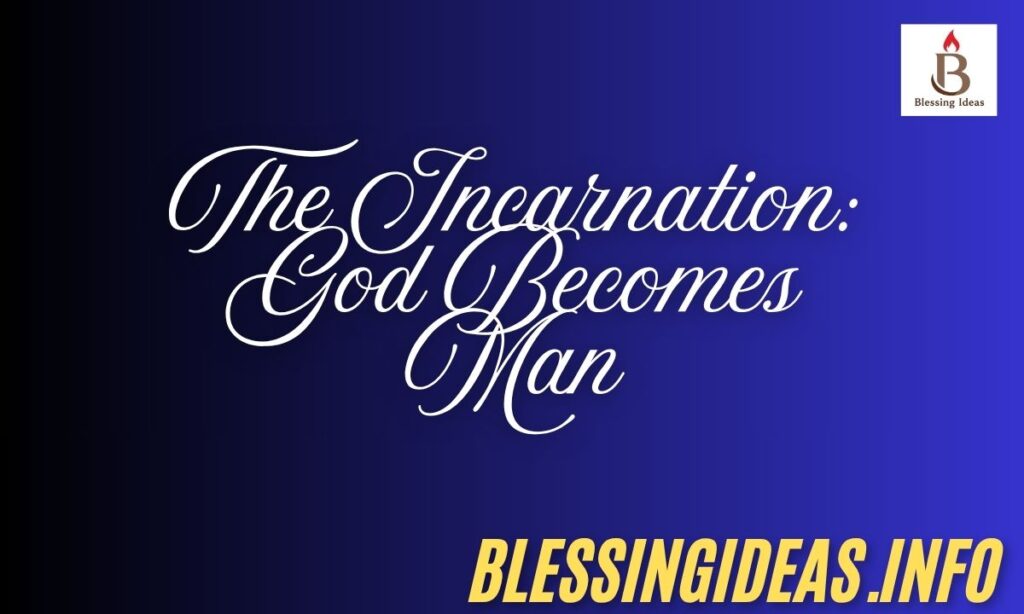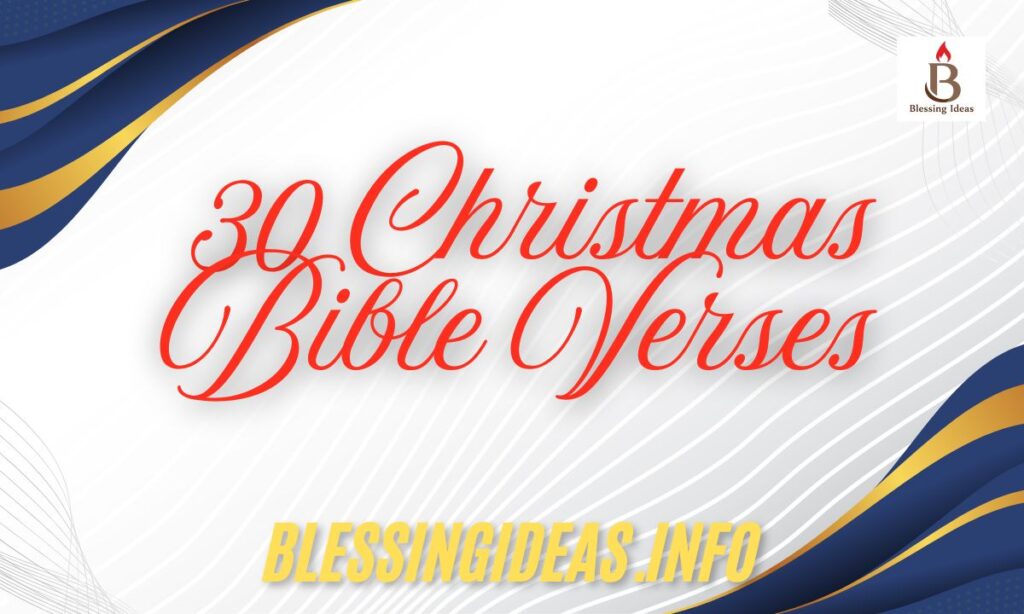Christmas is far more than twinkling lights, wrapped presents, and festive gatherings—it is the celebration of the most extraordinary event in human history: the birth of Jesus Christ, the Son of God. At the heart of this sacred season lies the profound truth that God loved the world so deeply that He sent His only Son to dwell among us, bridging the gap between heaven and earth. The Bible tells this remarkable story through prophecies spoken centuries before Christ’s arrival, eyewitness accounts of His miraculous birth, and theological reflections on what the incarnation means for humanity.
These 30 carefully selected Bible verses provide a comprehensive journey through the Christmas narrative and its eternal significance. From ancient prophecies in Isaiah and Micah that foretold the coming Messiah, to Luke and Matthew’s detailed accounts of angels, shepherds, and wise men, to profound theological insights from John and Paul about God becoming flesh—these scriptures illuminate why Christmas matters. Each verse is accompanied by historical context and practical application to help deepen your understanding and enrich your celebration.
The Promise of Christ’s Coming
1. John 3:16 (ESV)
“For God so loved the world, that He gave His only Son, that whoever believes in Him should not perish but have eternal life.”
Context: Jesus spoke these words to Nicodemus, explaining God’s plan of salvation. This verse encapsulates the entire Gospel message and the reason for Christmas – God’s sacrificial love for humanity.
Why It Matters: This is perhaps the most famous verse in the Bible, summarizing why Jesus came to earth. Christmas celebrates the fulfillment of this divine gift.
2. Zechariah 9:9 (NKJV)
“Rejoice greatly, O daughter of Zion! Shout, O daughter of Jerusalem! Behold, your King is coming to you; He is just and having salvation, lowly and riding on a donkey, a colt, the foal of a donkey.”
Context: Written approximately 520-518 BC, this prophecy foretold the coming Messiah’s humble entrance. While often associated with Palm Sunday, it speaks to Christ’s entire nature from birth.
Why It Matters: Shows that Jesus’s humility was prophesied centuries before His birth – He came as a servant-king, not in worldly power.
3. Isaiah 7:14 (ESV)
“Therefore the Lord Himself will give you a sign. Behold, the virgin shall conceive and bear a son, and shall call His name Immanuel.”
Context: Prophesied around 735 BC during King Ahaz’s reign. Immanuel means “God with us” – a promise that God would dwell among His people.
Why It Matters: This prophecy, given 700 years before Christ’s birth, was miraculously fulfilled in Mary’s virgin conception, proving Jesus’s divine nature.
4. Isaiah 9:6-7 (ESV)
“For to us a Child is born, to us a Son is given; and the government shall be upon His shoulder, and His name shall be called Wonderful Counselor, Mighty God, Everlasting Father, Prince of Peace. Of the increase of His government and of peace there will be no end, on the throne of David and over His kingdom, to establish it and to uphold it with justice and with righteousness from this time forth and forevermore.”
Context: Isaiah prophesied during turbulent times in Israel’s history. This passage looks forward to the coming Messiah who would bring eternal peace.
Why It Matters: This verse reveals Jesus’s multiple roles and divine nature. Each title (Wonderful Counselor, Mighty God, Everlasting Father, Prince of Peace) describes an aspect of Christ’s character and mission.
5. Micah 5:2 (ESV)
“But you, O Bethlehem Ephrathah, who are too little to be among the clans of Judah, from you shall come forth for me one who is to be ruler in Israel, whose coming forth is from old, from ancient days.”
Context: Written around 700 BC, Micah specifically names Bethlehem as the Messiah’s birthplace.
Why It Matters: This prophecy was so well-known that when the wise men asked Herod where the Messiah would be born, the scribes immediately knew to point them to Bethlehem.
The Nativity Story
6. Luke 1:26-35 (ESV)
“In the sixth month the angel Gabriel was sent from God to a city of Galilee named Nazareth, to a virgin betrothed to a man whose name was Joseph, of the house of David. And the virgin’s name was Mary. And he came to her and said, ‘Greetings, O favored one, the Lord is with you!’ But she was greatly troubled at the saying, and tried to discern what sort of greeting this might be. And the angel said to her, ‘Do not be afraid, Mary, for you have found favor with God. And behold, you will conceive in your womb and bear a son, and you shall call His name Jesus. He will be great and will be called the Son of the Most High. And the Lord God will give to Him the throne of His father David, and He will reign over the house of Jacob forever, and of His kingdom there will be no end.’ And Mary said to the angel, ‘How will this be, since I am a virgin?’ And the angel answered her, ‘The Holy Spirit will come upon you, and the power of the Most High will overshadow you; therefore the child to be born will be called holy—the Son of God.'”
Context: This is the Annunciation – the moment Mary learned she would bear the Messiah. Gabriel had just announced John the Baptist’s birth to Zechariah.
Why It Matters: Mary’s faithful response (“Let it be to me according to your word”) shows remarkable trust in God’s plan, despite the social risks she faced.
7. Matthew 1:18-25 (ESV)
“Now the birth of Jesus Christ took place in this way. When His mother Mary had been betrothed to Joseph, before they came together she was found to be with a child from the Holy Spirit. And her husband Joseph, being a just man and unwilling to put her to shame, resolved to divorce her quietly. But as he considered these things, behold, an angel of the Lord appeared to him in a dream, saying, ‘Joseph, son of David, do not fear to take Mary as your wife, for that which is conceived in her is from the Holy Spirit. She will bear a Son, and you shall call His name Jesus, for He will save His people from their sins.’ All this took place to fulfill what the Lord had spoken by the prophet: ‘Behold, the virgin shall conceive and bear a son, and they shall call His name Immanuel’ (which means, God with us). When Joseph woke from sleep, he did as the angel of the Lord commanded him: he took his wife, but knew her not until she had given birth to a Son. And he called His name Jesus.”
Context: Matthew emphasizes Joseph’s perspective and the fulfillment of prophecy. Joseph’s righteousness and obedience are highlighted.
Why It Matters: Shows God’s care for both Mary and Joseph, providing divine confirmation to Joseph and protecting Mary from disgrace. The name “Jesus” (Yeshua) means “The Lord saves.”
8. Luke 2:1-7 (ESV)
“In those days a decree went out from Caesar Augustus that all the world should be registered. This was the first registration when Quirinius was governor of Syria. And all went to be registered, each to his own town. And Joseph also went up from Galilee, from the town of Nazareth, to Judea, to the city of David, which is called Bethlehem, because he was of the house and lineage of David, to be registered with Mary, his betrothed, who was with child. And while they were there, the time came for her to give birth. And she gave birth to her firstborn son and wrapped him in swaddling clothes and laid him in a manger, because there was no place for them in the inn.”
Context: Luke, a careful historian, provides specific historical details. Caesar’s census unknowingly fulfilled Micah’s prophecy by bringing Mary and Joseph to Bethlehem.
Why It Matters: The King of Kings was born in the humblest circumstances, showing that Jesus came for all people, not just the wealthy or powerful.
9. Luke 2:8-14 (ESV)
“And in the same region there were shepherds out in the field, keeping watch over their flock by night. And an angel of the Lord appeared to them, and the glory of the Lord shone around them, and they were filled with great fear. And the angel said to them, ‘Fear not, for behold, I bring you good news of great joy that will be for all the people. For unto you is born this day in the city of David a Savior, who is Christ the Lord. And this will be a sign for you: you will find a Baby wrapped in swaddling cloths and lying in a manger.’ And suddenly there was with the angel a multitude of the heavenly host praising God and saying, ‘Glory to God in the highest, and on earth peace among those with whom He is pleased!'”
Context: Shepherds were among the lowest social classes, yet they received the first announcement of Christ’s birth.
Why It Matters: God’s salvation is for everyone, regardless of social status. The angelic announcement includes the Gospel in miniature: a Savior, Christ (the Anointed One), the Lord.
10. Luke 2:15-20 (ESV)
“When the angels went away from them into heaven, the shepherds said to one another, ‘Let us go over to Bethlehem and see this thing that has happened, which the Lord has made known to us.’ And they went with haste and found Mary and Joseph, and the baby lying in a manger. And when they saw it, they made known the saying that had been told them concerning this child. And all who heard it wondered at what the shepherds told them. But Mary treasured up all these things, pondering them in her heart. And the shepherds returned, glorifying and praising God for all they had heard and seen, as it had been told to them.”
Context: The shepherds became the first evangelists, sharing the good news they had received.
Why It Matters: Their immediate response of worship and witness shows the proper response to encountering Christ – going to see Him, then telling others.
11. Matthew 2:1-2 (ESV)
“Now after Jesus was born in Bethlehem of Judea in the days of Herod the king, behold, wise men from the east came to Jerusalem, saying, ‘Where is he who has been born king of the Jews? For we saw his star when it rose and have come to worship him.'”
Context: The magi (likely Persian astronomers/astrologers) traveled hundreds of miles following astronomical signs.
Why It Matters: Even Gentiles from distant lands recognized Jesus’s significance, foreshadowing that the Gospel would reach all nations.
12. Matthew 2:10-12 (ESV)
“When they saw the star, they rejoiced exceedingly with great joy. And going into the house, they saw the Child with Mary His mother, and they fell down and worshiped Him. Then, opening their treasures, they offered Him gifts, gold and frankincense and myrrh. And being warned in a dream not to return to Herod, they departed to their own country by another way.”
Context: The gifts were symbolic: gold for a king, frankincense for deity/priest, myrrh for burial (foreshadowing His death).
Why It Matters: The wise men’s worship demonstrates the proper response to Christ – offering our best and bowing before Him in reverence.
The Incarnation: God Becomes Man

13. John 1:1-5 (ESV)
“In the beginning was the Word, and the Word was with God, and the Word was God. He was in the beginning with God. All things were made through him, and without him nothing was made. In him was life, and life was the light of men. The light shines in the darkness, and the darkness has not overcome it.”
Context: John’s Gospel begins by establishing Jesus’s preexistence and deity before describing His incarnation.
Why It Matters: Christmas isn’t just about a baby being born – it’s about the eternal God entering time and space. Jesus is the Creator who became part of His creation.
14. John 1:14 (NKJV)
“And the Word became flesh and dwelt among us, and we beheld His glory, the glory as of the only begotten of the Father, full of grace and truth.”
Context: “Dwelt” literally means “tabernacled” – recalling how God’s presence dwelt in the tabernacle with Israel.
Why It Matters: The incarnation is the ultimate expression of God’s desire to be with His people. Jesus didn’t just visit earth; He became fully human while remaining fully God.
15. Galatians 4:4-5 (ESV)
“But when the fullness of time had come, God sent forth His Son, born of woman, born under the law, to redeem those who were under the law, so that we might receive adoption as sons.”
Context: Paul explains that Jesus came at precisely the right moment in history – when Roman roads enabled Gospel spread, Greek provided a common language, and Jewish diaspora had spread monotheism.
Why It Matters: Jesus’s birth wasn’t random timing. God orchestrated history to bring His Son at the perfect moment. Christ came to redeem us and make us God’s children.
16. Philippians 2:5-8 (ESV)
“Have this mind among yourselves, which is yours in Christ Jesus, who, though he was in the form of God, did not count equality with God a thing to be grasped, but emptied himself, by taking the form of a servant, being born in the likeness of men. And being found in human form, he humbled himself by becoming obedient to the point of death, even death on a cross.”
Context: This passage, often called the “kenosis” (emptying), describes Christ’s voluntary humiliation.
Why It Matters: Christmas celebrates the greatest act of humility ever – God becoming human. Jesus didn’t cling to divine privileges but willingly became vulnerable for our sake.
17. Hebrews 2:14-15 (ESV)
“Since therefore the children share in flesh and blood, he himself likewise partook of the same things, that through death he might destroy the one who has the power of death, that is, the devil, and deliver all those who through fear of death were held in lifelong slavery.”
Context: The book of Hebrews emphasizes Jesus’s full humanity and His role as our sympathetic High Priest.
Why It Matters: Jesus had to become human to be our substitute. By sharing our nature, He could die in our place and break death’s power.
18. 1 Timothy 3:16 (ESV)
“Great indeed, we confess, is the mystery of godliness: He was manifested in the flesh, vindicated by the Spirit, seen by angels, proclaimed among the nations, believed on in the world, taken up in glory.”
Context: This appears to be an early Christian hymn or creed, summarizing Christ’s earthly ministry.
Why It Matters: The incarnation is called a “mystery” – not because it’s impossible to understand, but because it’s a truth that was hidden and has now been revealed.
The Purpose of Christ’s Coming
19. Luke 19:10 (ESV)
“For the Son of Man came to seek and to save the lost.”
Context: Jesus spoke these words after visiting Zacchaeus, demonstrating His mission to reach sinners.
Why It Matters: Christmas celebrates not just Jesus’s arrival, but His mission. He came with purpose – to rescue those who were lost in sin.
20. 1 Timothy 1:15 (ESV)
“The saying is trustworthy and deserving of full acceptance, that Christ Jesus came into the world to save sinners, of whom I am the foremost.”
Context: Paul, reflecting on his past as a persecutor of Christians, expresses amazement at God’s grace.
Why It Matters: Jesus didn’t come for the righteous or the perfect – He came for sinners. That’s the good news of Christmas: salvation is available to all who recognize their need.
21. Matthew 1:21 (ESV)
“She will bear a son, and you shall call his name Jesus, for he will save his people from their sins.”
Context: The angel explains to Joseph the meaning of Jesus’s name and His mission.
Why It Matters: Jesus’s very name declares His purpose. Christmas celebrates the arrival of the One who would save us not just from sin’s consequences, but from sin itself.
22. John 14:6 (ESV)
“Jesus said to him, ‘I am the way, and the truth, and the life. No one comes to the Father except through me.'”
Context: Jesus spoke these words to His disciples during the Last Supper, clarifying His unique role.
Why It Matters: Christmas celebrates the birth of the only way to God. Jesus is not one path among many – He is the exclusive means of reconciliation with God.
23. Romans 6:23 (ESV)
“For the wages of sin is death, but the free gift of God is eternal life in Christ Jesus our Lord.”
Context: Paul contrasts what we earn (death) with what God freely gives (life).
Why It Matters: Christmas is about gift-giving because God gave us the ultimate gift. While we deserved death, God offers eternal life through Christ.
Responding to Christ’s Birth
24. John 1:10-13 (NKJV)
“He was in the world, and the world was made through Him, and the world did not know Him. He came to His own, and His own did not receive Him. But as many as received Him, to them He gave the right to become children of God, to those who believe in His name: who were born, not of blood, nor of the will of the flesh, nor of the will of man, but of God.”
Context: John contrasts two responses to Jesus – rejection and reception.
Why It Matters: Christmas confronts us with a choice. We must either receive Christ by faith or reject Him. Those who receive Him become God’s children through spiritual rebirth.
25. Romans 10:9-13 (NIV)
“If you declare with your mouth, ‘Jesus is Lord,’ and believe in your heart that God raised Him from the dead, you will be saved. For it is with your heart that you believe and are justified, and it is with your mouth that you profess your faith and are saved. As Scripture says, ‘Anyone who believes in Him will never be put to shame.’ For there is no difference between Jew and Gentile—the same Lord is Lord of all and richly blesses all who call on Him, for ‘Everyone who calls on the name of the Lord will be saved.'”
Context: Paul explains the simplicity of salvation – it requires faith and confession.
Why It Matters: The proper response to Christmas is not just celebration, but personal commitment to Christ as Lord. Salvation is available to all who call on Him in faith.
26. 1 John 1:5-9 (ESV)
“This is the message we have heard from Him and proclaim to you, that God is light, and in Him is no darkness at all. If we say we have fellowship with Him while we walk in darkness, we lie and do not practice the truth. But if we walk in the light, as He is in the light, we have fellowship with one another, and the blood of Jesus His Son cleanses us from all sin. If we say we have no sin, we deceive ourselves, and the truth is not in us. If we confess our sins, He is faithful and just to forgive us our sins and to cleanse us from all unrighteousness.”
Context: John writes to believers about maintaining fellowship with God through confession and repentance.
Why It Matters: Christmas celebrates the birth of the One whose blood cleanses us from sin. Through confession, we can have continuous fellowship with God.
Praise and Thanksgiving

27. 2 Corinthians 9:15 (NKJV)
“Thanks be to God for His indescribable gift!”
Context: Paul concludes a discussion about generous giving by pointing to God’s ultimate generosity.
Why It Matters: Jesus is the indescribable gift – so wonderful that words cannot fully capture His worth. Christmas should overflow with thanksgiving for what God has given us.
28. Psalm 107:1 (ESV)
“Oh give thanks to the LORD, for He is good, for His steadfast love endures forever!”
Context: This psalm calls God’s people to give thanks for His deliverance and steadfast love.
Why It Matters: Christmas is a time to thank God for His goodness and faithful love, supremely demonstrated in sending His Son.
29. Romans 15:13 (NIV)
“May the God of hope fill you with all joy and peace as you trust in Him, so that you may overflow with hope by the power of the Holy Spirit.”
Context: Paul’s prayer for believers to experience God’s joy, peace, and hope.
Why It Matters: Christmas should fill believers with supernatural joy and hope. The birth of Christ secured our future and gives us reason for confident hope.
30. Psalm 103:11-13 (ESV)
“For as high as the heavens are above the earth, so great is His steadfast love toward those who fear Him; as far as the east is from the west, so far does He remove our transgressions from us. As a father shows compassion to his children, so the LORD shows compassion to those who fear Him.”
Context: David praises God for His forgiveness and compassionate love.
Why It Matters: Christmas celebrates the coming of the One who would make complete forgiveness possible. God’s love, demonstrated at Christmas, is as vast as the universe and removes our sins completely.
The True Meaning of Christmas
Christmas is ultimately about God’s love (John 3:16), fulfilled prophecy (Isaiah 7:14, Micah 5:2), the incarnation (John 1:14), humble service (Philippians 2:5-8), salvation from sin (Matthew 1:21), and the gift of eternal life (Romans 6:23).
The proper response includes worship (Matthew 2:11), receiving Christ by faith (John 1:12), confession of sin (1 John 1:9), declaring Jesus as Lord (Romans 10:9), and overflowing thanksgiving (2 Corinthians 9:15).
As we celebrate Christmas, let us remember that the baby in the manger is Immanuel – God with us, who came to seek and save the lost, offering eternal life to all who believe in Him.
Conclusion
As we reflect on these 30 verses, we see the magnificent tapestry of God’s redemptive story woven throughout Scripture—from ancient prophecies whispered through the prophets, to their glorious fulfillment in a humble Bethlehem stable, to the eternal implications that echo into our lives today. Christmas is not merely a historical commemoration of an event that happened over two thousand years ago; it is a living celebration of God’s unshakeable promise to never abandon His people.
This Christmas season, let these verses transform how you celebrate. Move beyond mere tradition and allow the Word of God to penetrate your heart afresh with wonder and worship. Share these truths with family and friends who need to hear the good news that a Savior has been born. Let the angels’ proclamation to the shepherds become your own message: “I bring you good news of great joy that will be for all the people!”






